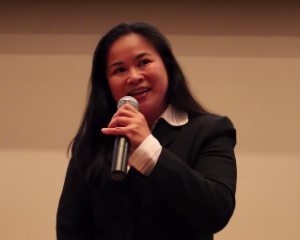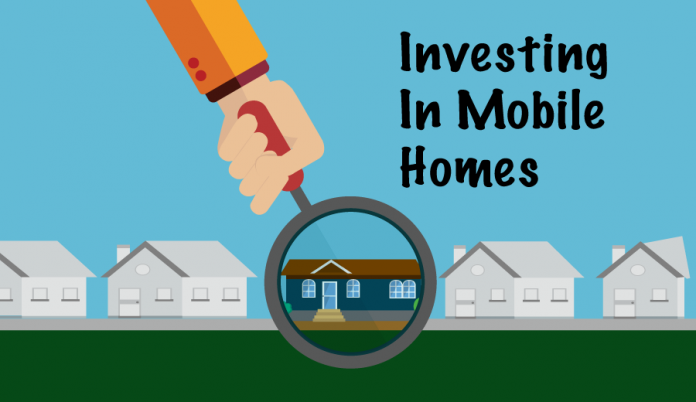‘Mobile Home Gurl’ Finds Her Niche in Mobile Home Investment
In her own words, the woman known to some as “Mobile Home Gurl” is an entrepreneur, a dreamer, a thinker. A doer.
She started investing in real estate with single family homes, but her mind was captivated and heart captured when she immersed herself in the world of mobile home investment. And she’s taken quite a few of us on the ride with her, in her blog and in the book “Adventures in Mobile Homes” and others.
Rachel Hernandez, as she also is known, operates in the vicinity of San Antonio, Texas.

She prefers to buy locally to regionally, and rather than looking for parks she has concentrated on purchasing individual mobile homes. More recently she has leaned on securing the land they sit on. Or a good parcel where the home can be placed.
“I focus on the area first and then find the deals,” Hernandez said. “As an experienced investor, I’ve learned to find motivated sellers. Usually, I can tell over the phone whether a seller is motivated or not.”
Strategy Talk from Mobile Home Gurl
Most of the deals Hernandez pursues are unadvertised. She has an education and background in sales and marketing, and networking is among her greatest strengths. She leverages that capability and relies on her industry interactions and relationships to find opportunity.
Her first deal took about a year to complete, and she continues to take it relatively slow. She purchases one or two homes at a time, and puts her “sweat equity” into them.
“Usually, I get them up to apartment standards,” Hernandez said. “New carpet and paint at a minimum.” She fixes the leaks, fills any cracks or holes and gives a thorough cleaning. Then she offers the home on a rent-to-buy plan.
“Most people appreciate this hybrid as it’s not like a mortgage where you’re locked in, but at the same time you’re not just renting,” she said.
Her mobile home investment inventory is on the rise, to the point where she owns in quantity what would be a small mobile home community. Hernandez does receive regular offers to partner, but has resisted the urge to purchase an entire community outright. She remains on the lookout for land, and does work in communities buying both homes and pads, operating just on the fringe from that investor who looks to buy or infill on a larger scale.
She Meets the Challenge
And while she appreciates having all of the particular on paper, she mostly “follows her gut” when deciding what to pursue and what to leave alone.
“It’s more the person than the price. If the person I’m talking with on the phone does not seem trustworthy, or seems like they’re covering something up… I back off immediately,” she said. “No matter how good the deal sounds, an untrustworthy seller is a deal breaker for me.”
Still, Hernandez has run into problems with mobile home investment.
“I imagined buying a home, filling it and moving on to the next deal,” she said. “Though I did this for many years without many issues, I started taking back more homes as my inventory grew.”
A rent-to-own resident loses a job, goes through a divorce or wants to move closer to family, and sometimes the only solution is to reclaim the home and find someone new for it.
“I knew taking homes back was part of the business. But I didn’t plan on it being a large one,” Hernandez said. “So, I had to learn to work with contractors. There was no way I could fix up all these homes myself.”
Another difficulty has nothing to do with residents and everything to do with one of her favorite parts of the vocation… the prime location.
“Unfortunately, sometimes local ordinances may place more scrutiny on mobile home parks, as an asset class,” she said. “There’s still that mindset.”
The not-in-my-back-yard attitude, the general concern of reduced property values, and the perceived threat of residents who pay less tax than many for the same municipal services, often can be difficult issues to navigate when looking to obtain rezoning or a new use permit – regardless of the great need for more affordable housing.

All Part of the Journey
The take-back and fix-up strategy, as well as the municipal hurdles, have resulted in another of her books, this one entitled “Real Estate Investing Sucks: How to Deal with Change and Find Success as a Real Estate Investor”.
“I document my entire experience,” Hernandez said. “I persist, know what I want and keep going. Success takes time.”










